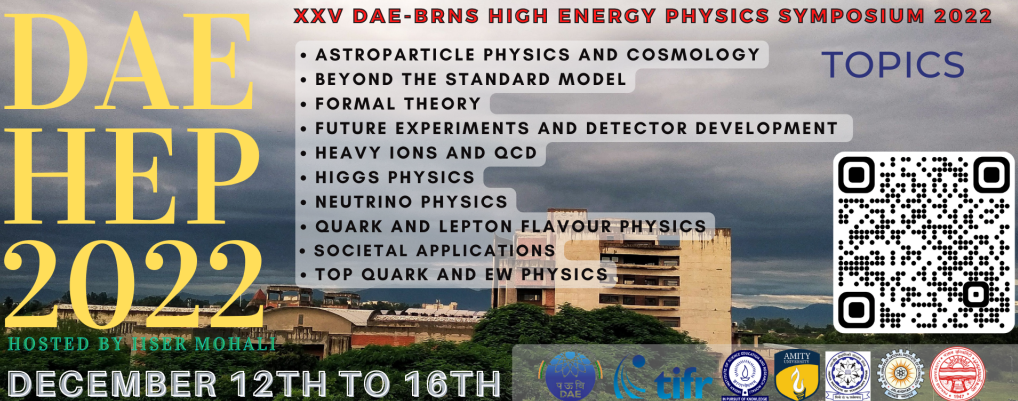Speaker
Description
Relativistic dissipative hydrodynamics is an effective macroscopic theory of a near-equilibrium system. It is a tool to explore the collective behaviour of the strongly interacting medium produced in heavy-ion collisions. The ideal hydrodynamic simulation deals with the evolution equations of hydrodynamic variables derived from the conservation laws using the equation of state as an input. To incorporate the dissipative effects one must rely on some additional microscopic prescription. Relativistic kinetic theory is a viable option in this regard. It is a statistical framework that describes the macroscopic quantities using the single-particle phase-space distribution function. The dissipative quantities are expressed in terms of the nonequilibrium distribution function that can be obtained employing the Boltzmann Equation. The microscopic interactions are incorporated in the Boltzmann equation via the collision integral, making it an integro-differential equation. The Relaxation Time Approximation (RTA) is a simplification of that, where all interactions are governed by a relaxation time. However, as an artifact of this simplification, one needs additional matching conditions to satisfy the conservation laws of energy-momentum and number current. In this work, we have derived the relativistic dissipative hydrodynamics from a more general Bhatnagar-Gross-Krook (BGK) collision kernel which converges to the RTA description as a limiting case. The BGK kernel conserves the number current by construction and thus no specific matching condition for the same is necessary. This additional freedom leads to a class of physically consistent hydrodynamic descriptions constrained by a single matching condition ensuring energy-momentum conservation. Thus, this framework provides a platform to explore the effects of general matching conditions on transport coefficients and their deviation from the usual RTA prescription. We have also proposed a modified BGK collision kernel which can be particularly useful for system with vanishing net baryon density and derived dissipative hydrodynamics from it.
| Session | Heavy Ions and QCD |
|---|

